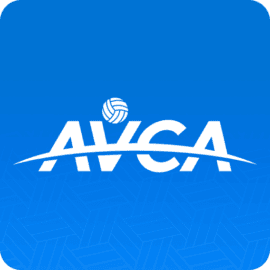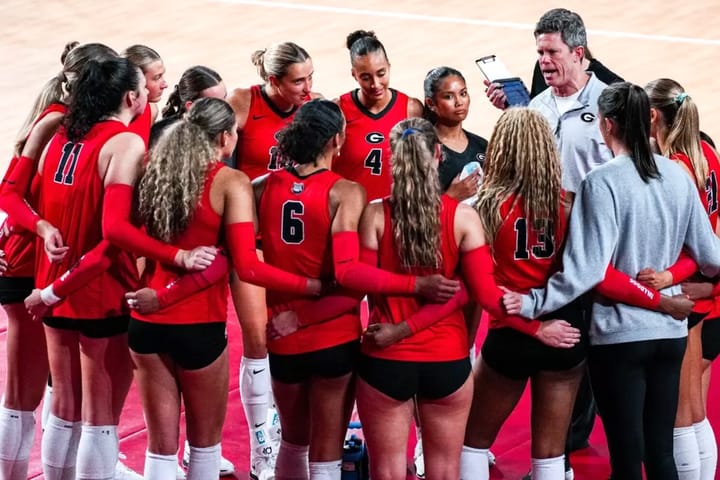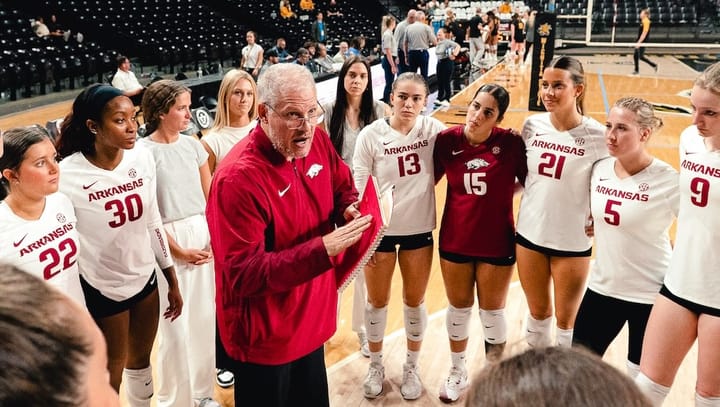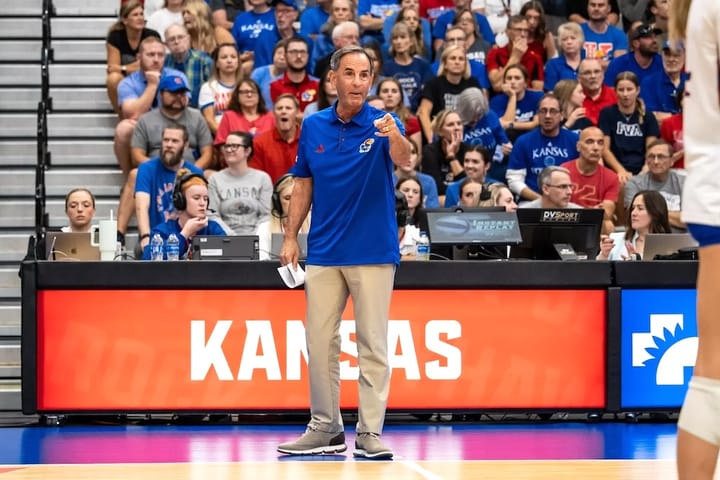98. Nickie Sanlin: There's no progress without failure.
Nickie Sanlin is McKendree University’s Director of Volleyball, head men’s coach, and Assistant Athletic Director for Impact and Strategic Engagement.
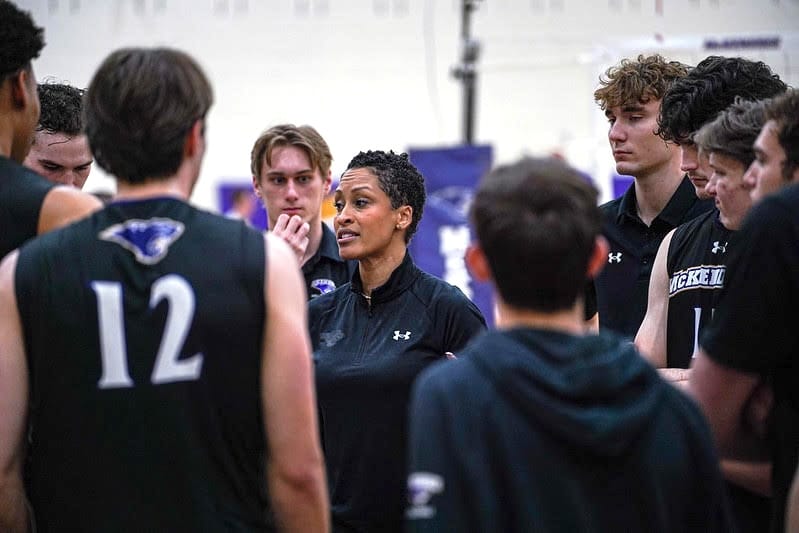
Nickie Sanlin took charge of McKendree’s women’s volleyball team in 2014 and built the men’s squad from the ground up a year later.
Since then, her women’s teams have piled up 135 wins and five NCAA tournament appearances, while her men’s squads have passed the 100-victory mark and are the 2025 MIVA regular season champion.
Coach Sanlin owns two MIVA Coach-of-the-Year awards and this past season became the AVCA’s National Collegiate Men’s Coach of the Year, the first woman to earn the honor. USA Volleyball also chose Nickie to lead the U23 men's team at the 2025 NORCECA Pan Am Cup.
Away from the court, she chairs the AVCA Diversity Development Team and mentors young talent in USA Volleyball’s NTDP pipeline.
In this open and insightful conversation, Nickie shares the experiences and ideas that have shaped her coaching journey.
Key takeaways from this article include:
- How can failing help you figure out what you truly love?
- Deliver clear and supportive feedback to help players progress quickly and build resilience.
- The importance of sticking to solid basics instead of chasing flashy new drills every year.
- Thoughts on why today’s volleyball needs flexible skills and bold ideas.
- Why owning every loss teaches you exactly how to win next time.
- Aiming for the next goal keeps you hungry and stops post-win laziness.
- Thinking about future rule changes helps coaches plan far ahead.
We have 50 minutes of video interview (divided over 14 clips) with coach Sanlin in this article. Enjoy!
Enter Nickie...
Nickie, why did you decide to commit to being a professional volleyball coach? What pushed you towards that decision?
“I got fired from a job.”
I went from being a collegiate athlete to... not knowing what I wanted to do next. From fifth grade, around 10 years old, through to 22, I played sports my entire life. And then, once that ended, I thought, "Well, I guess the natural next step is to get a job."
But I was terrible at it.
It just wasn’t what I wanted to do. I was working with people who had never played sports, who didn’t have any sense of accountability or drive. It was just a job for them, a means to an end.
What I’ve learned about myself over time is that I don’t have a gray area. I’m either all in or all out. There’s no in-between.
And at that job? I was bad. I worked at Target corporate. It was not good. Eventually, I got fired.
I had no choice but to move back home. I had two kids under the age of two. And the only thing I knew was volleyball.
So I started coaching. Anything I could. Thirteen-year-olds, boys’ 18s, high school teams, whatever I could get my hands on. Then a collegiate assistant job opened up, and I thought, "You know what? I think I can do this."
At that point, I had no idea about Division II, or college coaching, or recruiting. I just knew volleyball.
I didn’t get the first job I applied for because I didn’t have any experience, and I was so bummed. But then the job at McKendree opened up in 2011, and I got it.
It didn’t pay much. Honestly, it was poverty level coaching. But I loved it. I lived it. Breathed it. Ate it. And that’s when it clicked:
I can wear athletic gear every day. I can do something different every day. I get to compete, even if I’m not the one physically competing.
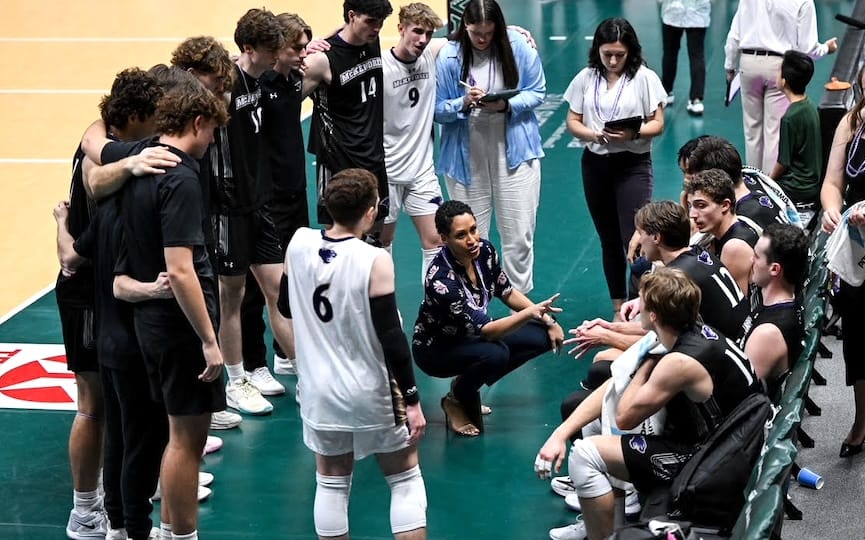
That was probably the real beginning, though looking back, I had already been coaching for years. In school, I coached all summer. I coached club, camps, I didn’t even go home.
Funny thing, my yoga instructor now was my high school volleyball coach. She brought in a letter I wrote as a senior, 17 years old. She sent me a picture of it, and I read it and thought, “Wow… this sounds exactly like me now.”
Even back then, I was basically coaching my teammates, just with worse grammar, before college cleaned that up.
So I’ve been coaching my whole life. But I had to get fired for it to click.
And that’s something I tell my players all the time: “There’s no progress without failure.”
I got fired. One of you might get fired someday. And it might just be the thing that opens the door to something special.
What advice would you give yourself as a starting coach? An advice that is so clear and logical for you now, but that you had to develop over the years.
It’s not personal. It’s not life or death.
I’m very passionate about what I do, and sometimes, that passion used to completely take over. Back then, I didn’t understand why people didn’t operate the same way I did.
I remember telling my sister when she was heading to college, “You need to be first in sprints. First in drills. Be the best—always. And don’t get distracted—boys are dumb.”
(Obviously, I didn’t take that advice myself at the time…)
But seriously, I was so focused on the intangibles that led to success. I just didn’t realize yet how to balance that passion with the message I was trying to give.
Looking back, I think that intensity attracted a lot of the athletes I coached early on. I was in it with them, running, lifting, playing side-by-side. We weren’t that good, but we were in the trenches together.
I don’t think the passion was a bad thing. But I can admit now that I could’ve tempered how I delivered it. I was very brash, very direct. Still am, to a degree. I’ve always been the type to just say, “Hey, this is what it is.”
Back then, I didn’t get why they couldn’t separate the person from the player. I’d go right for the jugular and think, “They’re athletes, they can take it.” I never paused to consider that maybe, at 18 to 22 years old, they couldn’t.
Now, I’ll preface what I say with, “This isn’t about you as a person, this is about you as an athlete.” And yes, I still push them, but I give them the benefit of the doubt. I understand if it hits them personally, even if they say it doesn’t.
That’s something I’d tell my younger self: not everyone hears things the way you do. Not everyone is wired like you.
I always say, “I played school.” I didn’t love school; I just showed up, went to practice, played in games, worked out, and hung out with friends. That was the life I knew.
At the beginning of my coaching career, I was 100% all-in. Sun-up to sundown—recruiting, emailing, calling, just grinding constantly. I gave every ounce of myself to it. And honestly, that dedication helped get the program to where it is today.
But now, I’ve learned to create more balance. My phone goes off at 9 PM, don’t text, don’t call. (Though, of course, my players still call until I answer. That’s just how it is.) But I take more personal time. I prioritize family.
And I’ve learned that delivering a message with care doesn’t mean backing down. It means explaining more clearly. It means helping athletes understand that criticism of performance isn’t criticism of them as people.
I still hold high standards. I still push hard. But I’ve learned how to temper the words, and that’s made all the difference.
What are the bad recommendations you still hear about coaching or training volleyball?
When I was watching the VNL, one thing that stood out, though I’m not sure this is the “right” answer, is how confused people are about being out of rotation on the toss.
It’s become a real hot-button issue. A lot of people are worried that this is going to creep into NCAA play, and honestly, I hope not. I just don’t think we have the officials to police that consistently or accurately.
But beyond that, there are so many things in our game right now that spark debate, like, how are we teaching ball control? How are we training defense?
We were talking offline about coaches still teaching methods from the ‘80s or ‘90s. And I get it, my coach was a midline passer. I grew up on that. But no one is training midline passing anymore. Everything now is outside the midline.
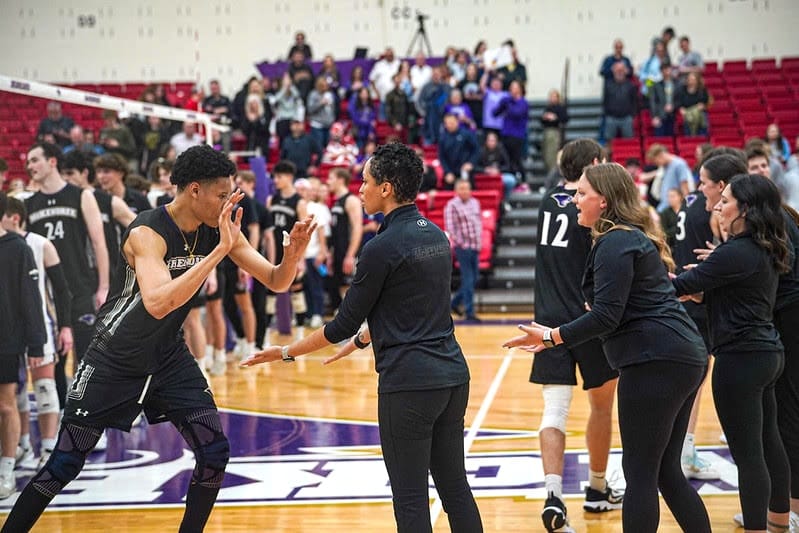
Still, you’ll hear these little pockets of conversation pop up: Why don’t we just go back to the way we used to teach it? Why doesn’t that work anymore?
And sure, volleyball is one of those sports where there are a dozen different ways to skin a cat. There’s more than one way to train something successfully. But I also think we don’t talk enough about this: If something clearly works for someone, why aren’t we open to doing it that way?
I was at a convention recently, and it hit me how many different ways we are teaching something as fundamental as eye work when blocking.
Is it “ball-setter-ball-hitter”? Or “ball-ball-ball-hitter”?
I sat there thinking, How many variations are we going to create for this?
Yes, there’s nuance in coaching. Yes, players learn differently. But sometimes it feels like we’re overcomplicating things just for the sake of being different.
Right now, though, the toss/rotation issue in the VNL is the one creating the most confusion.
Do you have a particular goal? Maybe a goal that you already reached or a goal that is so hard to reach that it gives you daily motivation?
It’s a two-parter for me. As a competitive person, this season was huge. We won our first conference championship, 12 years in the making.
I still remember my first year. We went 8–22. This year, we flipped it, 20–8. That growth didn’t happen overnight. It came from years of building, grinding, and pushing.
So now the next step is: Can we win the conference tournament? Can we hit those next milestones, one by one? That part is self-fulfilling. It’s the path you expect to climb.
But this year, something happened that I never saw coming: I was named National Coach of the Year.
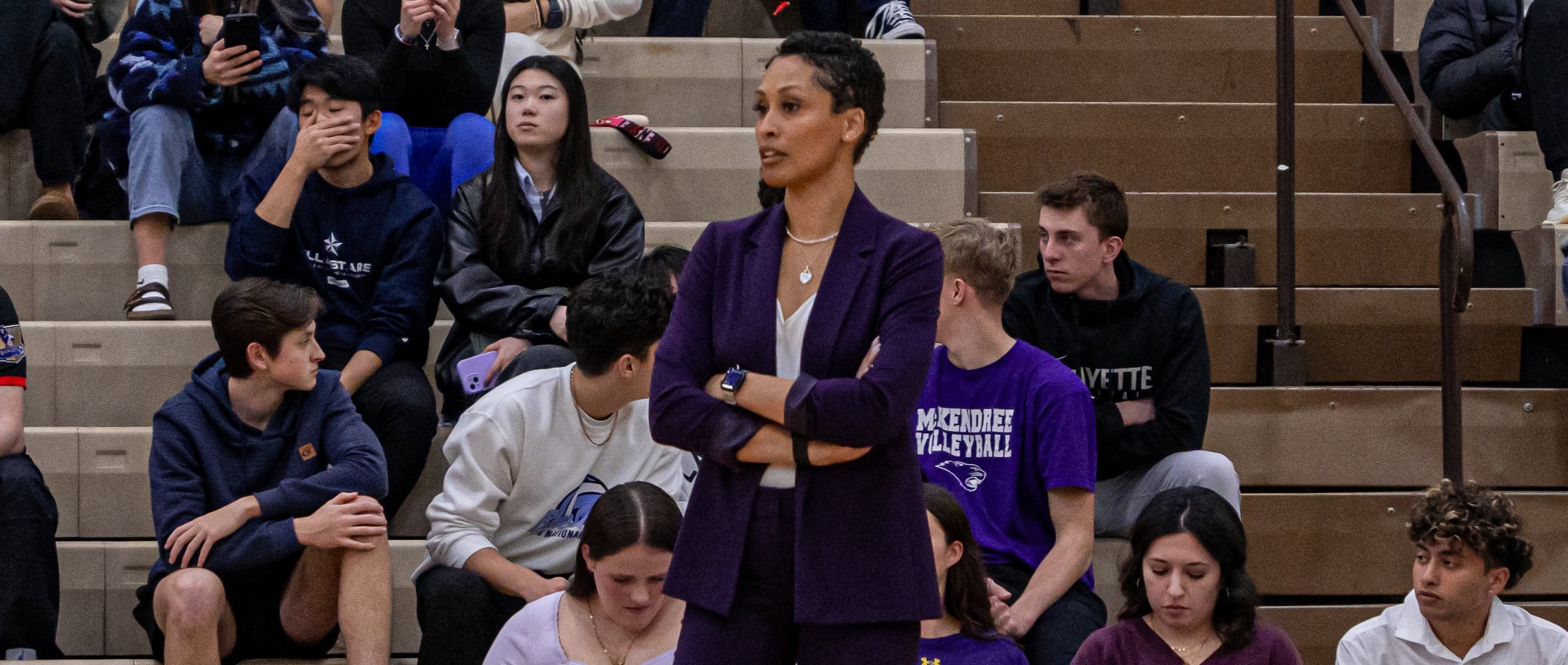
And to be honest, that was never on my radar. Not even close. It wasn’t a goal I’d written down or thought about. It didn’t feel tangible. I’ve been Conference Coach of the Year before, and that’s great, and it means something. It’s recognition from the nine coaches you play against regularly.
And I’ll say this, it’s a blessing and a curse.
The blessing is obvious: it’s an incredible honor. The curse. It’s the pressure that came with it, especially internal pressure.
